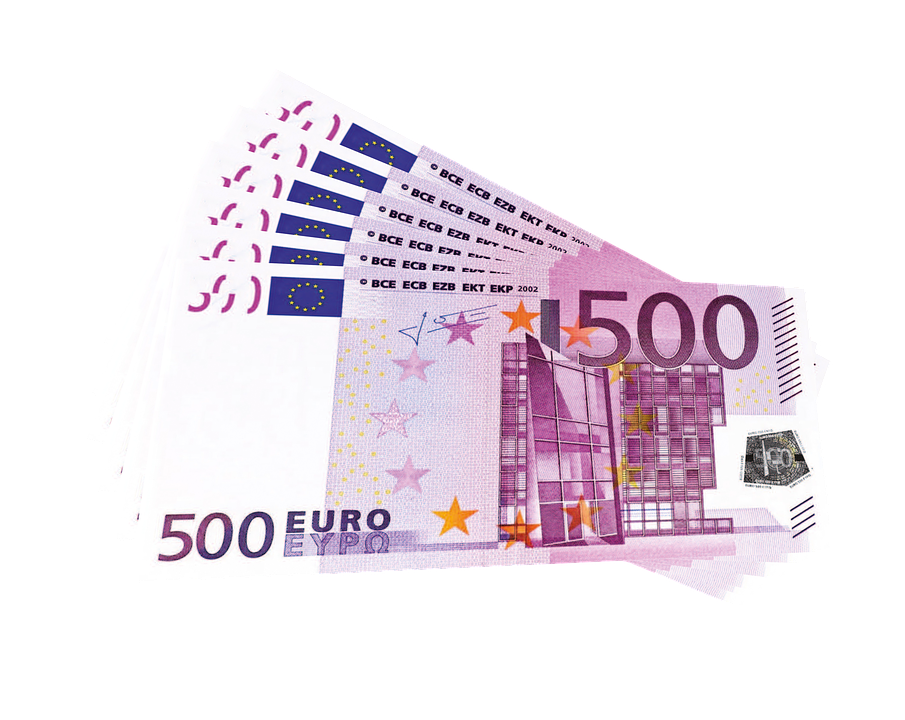Viewing posts categorised under: Mortgages in france
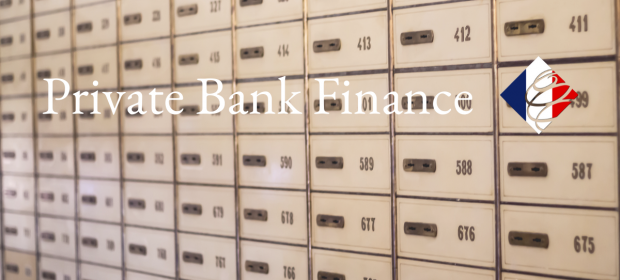
17.05.22
Have you considered private bank financing as an alternative to conventional mortgage borrowing from a retail bank?
L’impôt sur la fortune immobilière (IFI)
IFI replaced the ISF wealth tax in France in 2018, with only property (real estate) assets liable under the new system. Having a mortgage on your property reduces its net value for IFI assessment purposes and is therefore highly tax efficient, whether the borrowing is a conventional mortgage (with a retail bank) or a ‘back-to-back’ arrangement (with a private bank). More on this later.
Easier and more flexible process
Lending is one way for private banks to increase their assets under management, which involves taking a more flexible view of a client’s overall financial circumstances rather than simply completing a “box ticking” exercise specific to a mortgage application.
A few years ago, we had a prospective client whose business was buying up distressed companies in need of investment. He would inject the required capital and nurture them until they were profitable and then look for suitable buyers. He had been doing this for over 20 years and had made over £30m in profit – all of which was recorded in audited accounts. However, it was capital gain and not income… and all the big French retail banks turned him down for a mortgage because he didn’t meet their minimum income requirements!
Wealthy clients sometimes find that their financial situations are outside of the norm and with retail banks the “computer says no”. Private banks are more likely to offer a solution for these clients.
French residency and/or future retirement in France
If you are French resident or planning to move here, using mortgage finance for a property purchase is often more tax efficient than buying with cash, which can be deployed more productively elsewhere – investing in an Assurance Vie (AV) brings particularly valuable tax advantages as well as other financial planning benefits.
If you have been married before, and/or have children from a previous marriage, you may not be able to leave your wealth to whom you choose (due to French forced heirship rules) – unless you hold an AV. In addition to protecting investment income and gains from annual tax assessments, an AV allows you (not the government) to determine how your wealth is distributed.
Even if your nationality allows you to leave your estate to whomever you choose (which applies if you are British for example), it doesn’t alter the fact that inheritance tax rates get higher, and the allowances get smaller, the less closely related the beneficiary is to the deceased.
If you have remarried and want to nominate stepchildren as beneficiaries, they will pay 60% tax on their inheritance if it is not held in an AV, whereas the proceeds of an AV can be distributed without restriction between children and stepchildren – they all benefit from the first €152,500 being tax free (if the policyholder is under 70 when the money is invested) with the next €700,000 liable at 20% and at 31.25% on amounts above that. This is a much lower tax burden than if their inheritance was not wrapped in an AV.
Investment gains
In terms of investment returns it is reasonable to expect a sensibly managed portfolio to deliver long term growth at a rate that comfortably exceeds the cost of borrowing.
Of course there are no guarantees, but even with interest rates increasing (and taking into account AV charges), there is realistic scope to achieve this positive net return. Successful investing almost always relies on taking a long term view – the longer the timeframe the greater the prospects for success, particularly with professional guidance.
Mortgage borrowing is also generally structured for longer term duration and, with careful planning, can be combined with a suitable investment strategy to produce a cost effective, tax efficient and profitable ‘back to back’ financial plan.
Many private banks offer this type of opportunity. Our role as mortgage specialists and financial planners is to identify the best available options in the market and, most importantly, to examine whether such an arrangement is appropriate for individual client circumstances.
Posted by WebMaster in mortgages in france, private bank financing

05.05.21
The cost of buying a property in France
You’ve established your overall budget for the purchase of a house in France, and you might have already been in touch with us to determine your maximum borrowing capacity (if you haven’t yet, you can do so HERE). But before you find the French property of your dreams, it is important to check that you have budgeted for all the costs involved.
Legal costs in France
When buying a home in France you will need to appoint a notaire (solicitor), who will ensure that the transaction is legally compliant and that all of the associated property taxes are paid in full. Notaire fees are often the single largest expense you will need to cover when purchasing a property in France. Note, however, that the majority of those fees are not devoted to the legal costs of buying a home, rather to the French equivalent of stamp duty.
There is no need to shop around for the cheapest notaire, as their fees are fixed by law. We do recommend, however, that you choose a notaire who can speak English (or has a staff member who can), as this will facilitate the transaction.
Notaire fees depend on the price of your new home, and on whether it is a new build or an existing property. Typically, for an existing property, we estimate the notaire fees at around 7-8% of the purchase price, or 2% for a new build property. But, because some of those fees are set fees or have minimum amounts, the notaire fees could represent a higher percentage on a lower price property (for example: 11% notaire fees on a property price of 48,000€)
In order to have a good indication of the actual amount you would pay, have a look at the official website for notaires in France. They have a useful fee calculator in English: www.immobilier.notaires.fr/en/fee-calculator
Commission from agencies
Estate agents in France charge for their services in a very different way to those in the UK and the rest of Europe. As soon as you approach an agent in France about a house you’re interested in buying, you should ascertain whether or not the listing price includes the agent’s commission. Most asking prices include commission, but you should look for the term ‘FAI’, which stands for ‘frais d’agence inclus’. This denotes that all of the agent’s fees are included (paid for by the buyer as opposed to the UK system). However, if you see ‘TTC’ as part of a property listing (which stands for toutes taxes comprises), you should be aware that you will need to pay the agent’s fee on top of the purchase price.
Most agents in France will generally charge between five and ten percent of the purchase price for their services. It is important to remember that this is usually in addition to the notaire’s fee.
If you are flexible on exactly where in France your new home will be, hiring the services of a buyer’s agent may be a cost-effective move. A professional buyer’s agent will scour the country in search of properties that meet your criteria, which will help you to find real value for money in the market.
Paying a deposit
The vast majority of property purchases in France require that a 10% deposit is paid at the time of signing the preliminary contract. If you are buying a particularly expensive home, this may be reduced to five percent. It is advisable to request that this payment is made to the vendor’s notaire – and held in escrow until the end of the cooling-off period (usually seven days). If you must hand over a deposit to an agent, you should ensure that it will be held in an account specifically designed for holding deposits – a ‘compte séquestre’. If you change your mind about the purchase within the cooling-off period, your deposit must be returned to you in full within 21 days.
Converting your currency
Although you may now have a rough idea of what your finances can stretch to in France, even the slightest shift in the value of the Euro in comparison with your home currency can translate to a significant difference in the price you pay for the property. It is definitely a good idea to employ the services of a currency exchange provider in order to set a rate in advance.
Spectrum International Mortgages has partnered with Smart Currency Exchange. They will be able to advise you on any foreign exchange matters at advantageous rates. They are generally more cost effective than the bank, with a saving ranging anything from 1-3%. They will work closely with you on the timing and utilise forward contracts to secure an exchange rate for your future completion date.
Posted by Spectrum French Mortgages in Get a Low rate French mortgage, Low rate French mortgage, mortgages in france

23.02.21
When to apply for a French mortgage
QUESTION:
“We are planning to move to France this year and would like to buy a house. We are currently salaried but will set up our business once in France and thus become self-employed. Should we wait and apply as French residents once our business is set up in France, or apply for the mortgage now from overseas?”
ANSWER:
Our advice would be to apply for a mortgage as a non-resident now, rather than as a new French resident and self-employed.
Although interest rates are slightly lower for French residents, your French business will be too recent for the bank to be able to lend right away. In fact, you would need to wait until you can provide at least 3 years of accounts/tax returns before applying for a mortgage…
However, as a salaried non-resident, the bank will simply check that you are not currently in a probation period and that your contract is permanent. Together we will do the necessary calculations to determine the maximum mortgage amount based on your current income and charges.
QUESTION:
“We are planning to move to France once our house is sold here, and we will use the cash received to make the purchase in France. We might need a small mortgage for part of the purchase or for any eventual works to be done on the property. Can you help?”
ANSWER:
With the sale of your current home, the bank will view your move as permanent. Unless you have a new salaried employment contract planned for your arrival in France (or a transfer of your position), they will be reluctant to lend any amount of money. Obtaining a mortgage, even if the amount is small, will thus not be possible…
We would advise in this case that we assess your situation as of today, taking into account your current savings, income and charges. Together we will check your borrowing capacity.
With historically low interest rates, providing you can afford a new mortgage, it makes sense to borrow towards the purchase rather than invest your cash.
Whether you choose to apply for a mortgage in France or not, avoid being in the uncomfortable position of not having sufficient funds to complete your project once you have found your dream house, and speak to us today to make sure you have considered all options!
Posted by Spectrum French Mortgages in Get a Low rate French mortgage, mortgages in france
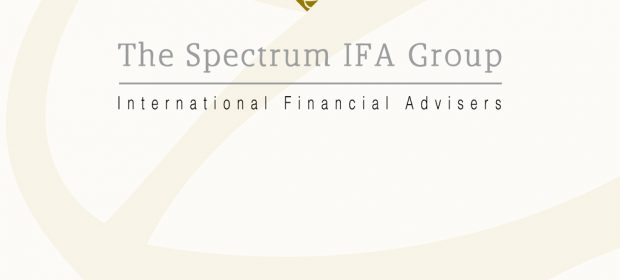
17.10.19
Our tax guides are written by our advisers who both live and work in the relevant country.
They highlight key tax issues affecting expatriates moving to or living in France.
The guides will help you understand the local tax residency rules and local taxes on income, inheritances, investments, property and pensions.
Our local advisers work closely with professional tax advisers and accountants in each country and it is always recommended to seek professional tax advice.
Posted by Spectrum French Mortgages in mortgages in france, Tax in France
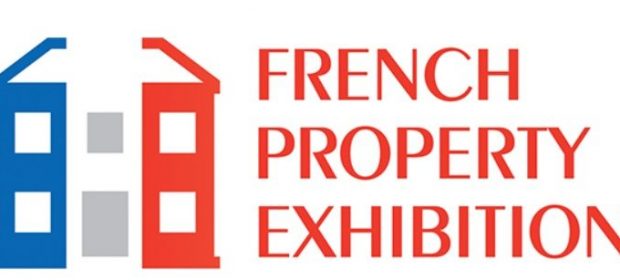
29.08.18
Spectrum International Mortgages at
The French Property Exhibition,
Olympia London, 15th – 16th September 2018
Spectrum International Mortgages is pleased to be exhibiting at The French Property Exhibition on the 15th and 16th September. Established over 25 years ago, this event is a ‘must attend’ for anyone who is serious about buying a property in France and is one of the UK’s most popular and long-running overseas property shows.
The show is the perfect opportunity to find out more about buying your dream home, with experts on hand to offer practical advice on a range of issues, from mortgage, tax, legal and investment matters, to guidance on wills, estate planning, pensions, currency transfers and more.
We are located at Stand 30, where our independent advisers and specialist mortgage representatives, all of whom live and work in France, will be available to answer questions and outline how we can help.
Event details are published on-line in advance of the show, giving you time to plan your day and ensure you get the most out of your visit. All sessions are free to attend, with tickets available on a first come, first served basis.
All visitors receive a complimentary copy of French Property News on arrival and a free show guide. Register for free fast-track entry now!
To book FREE tickets to the 2018 Olympia London event on the 15th & 16th September 2018, please click here.
We look forward to meeting you at stand 30.
Posted by Spectrum French Mortgages in mortgages in france

24.08.18
At Spectrum International Mortgages, we always have clients asking us questions. Recently the subject of inflation in a mortgage context has been coming up a lot.
Inflation, I have observed, has mostly negative connotations, and for savers this is for a good reason. If we look on Wikipedia, the definition of inflation is the following:
“In economics, inflation is a sustained increase in the price level of goods and services in an economy over a period of time. When the price level rises, each unit of currency buys fewer goods and services; consequently, inflation reflects a reduction in the purchasing power per unit of money”
So, how does that translate if you are interested in purchasing a property and setting up a mortgage?
Well, if a person buys a house with a €100,000 mortgage, the original loan amount will lose value over time in terms of purchasing power. That €100,000 will not have the same worth in the future.
Using a future inflation calculator, we can get an idea of what that original mortgage balance will actually be worth in purchasing power in 10 or 15 years. Assuming a 3% annual inflation rate, the €100,000 loan balance would only be worth about €74,000 in 10 years; in 15 years, it drops to about €64,000. This means your loan balance will not cost you as much in future Euros.
Therefore, if you still have most of that mortgage balance a decade from now, it will not be as much of a financial burden. After all, as time erodes the value of money, what is left of the €100,000 debt will not have the same value it once did.
In other words, paying it off in the future will be easier. In addition, as inflation rises, so too should salaries (in theory), so if you are making more money and Euros are worth less, that €100,000 balance will be easier to deal with. With more money in your pocket, and a fixed mortgage payment that has not changed for a decade or longer, you will be looking at even more affordable monthly payments.
For example, a €1,000 monthly mortgage payment 10 years from now will only cost about €750 in real terms, taking into account the value of money.
This is why trying to pay off your mortgage early and as quickly as possible may not be as attractive as you think it is. It could actually make much better sense to put the available money into an investment, for example, to fund your retirement.
The prospect of inflation does not necessarily mean you should be planning on having mortgages forever, but with mortgage rates currently very low and inflation as a factor to take into account, it can be a smart move to think twice before you pay it off entirely instead of doing something more constructive with the money.
Note that this scenario is assuming a fixed rate mortgage, so you lock in at the current low rates. As inflation increases, interest rates will rise to combat it, meaning higher rates on variable rate mortgages (and all other types of loans). Therefore, depending on the timeframe of your project and your risk profile, securing a fixed rate mortgage today could be a wise move.
Should you have any queries on the subject discussed in this article, please feel free to contact us at any time.
By Bérangère Chabenat at Spectrum International Mortgages in France
Posted by Spectrum French Mortgages in mortgages in france

21.02.18
Lending policies, debt ratios, loan to values, interest rate, insurance cover; mortgages can be confusing! At Spectrum International Mortgages, we have become experts at explaining all of the “how to’s” of obtaining a mortgage in France (How much can I borrow? How long will it take? How much will it cost me?).
However, there is another aspect you should not forget, the emotional roller coaster called buying a property and getting a mortgage approval. To mentally prepare for this, we believe a few useful tips could prevent a lot of stress!
The following advice is based on our own experience and the many conversations we have with our clients every day, assisting them the best way we can in their sometimes stressful projects:
1. Do not let yourself be influenced by the estate agent or sellers informing you that there are other potential buyers. Yes, this may be true, but it is equally likely that this is just a way of pushing you to make a quick decision. Choosing the right property, at the right price, is an important decision and should thus be carefully considered.
2. Do not worry because you require a mortgage while other potential buyers may be cash buyers. Once we start discussing and analysing your project and situation, we will be able to calculate your borrowing capacity. Our opinion, backed up with our access to dedicated underwriters at the bank, will give you the necessary confidence to make an appropriate offer. There are certain steps in obtaining a mortgage in France and approval that cannot be avoided, including a survey on the property (carried out by the bank) and a full study of all your information by the underwriting committee. This is why there is a legal framework in place (the suspensive clause), to protect your deposit while we obtain the necessary information from all parties.
3. Whenever possible, obtain additional time. Once your offer has been accepted (or before), please get in touch with us quickly. Although things will really get started once the compromis (the first legally binding stage in a property purchase in France) is prepared, we can review and submit your application earlier if it is fairly complete. The law requires the suspensive clause in the compromis to be set to a minimum of 30 days. Many notaires in France automatically increase it to 45 days. If you believe it will take you a long time to gather the supporting documentation, please try to extend it to 60 days.
4. Get ready to provide an enormous amount of information on your personal and financial situation. We have compiled a list of the documents commonly requested to assist you, but remember that additional questions may arise – don’t assume less is better. Trust us to assist you in gathering the documents and building your request.
5. Once the mortgage process has started, make it a priority. It is easy to lose track of time when there are 2 or 3 months until completion. Gathering all of the initial information is time consuming and you will certainly feel relieved once you have sent us all of your documents. However, don’t forget that additional questions from the underwriting committees, or other aspects of the mortgage such as opening a new bank account or organizing life insurance cover, are equally important. A week or two of delay towards the end of the process, when the bank needs additional time to release the funds to the notaire, could be a serious source of stress.
Spectrum International Mortgages are here to guide you every step of the way and take some of this stress off your hands. Please feel free to contact us today if you have any questions about a mortgage in France – we’re here to help!
Posted by WebMaster in mortgages in france
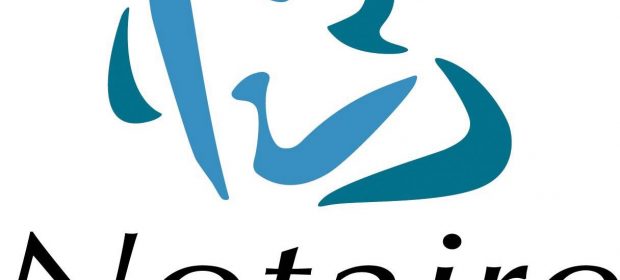
30.10.17
When buying a property in France, you will also need to pay what are called “notaire fees”. These can rarely be included in the mortgage hence why you should plan for this expense beforehand.
The notaire will first draw the pre-sales contract (compromis), and then the final contract, for completion (acte de vente). These documents will include all the details of the purchase, the vendors, the buyers, as well as the amount of notaire fees.
Notaire fees are mistakenly called as such. In reality, they are purchase costs (frais d’acquisition), and are added to the purchase cost of the property. In common language they are referred as notary fees but in reality they are made of:
- 80% national and local taxes
- 10% of funds the notaire has to anticipate to settle the purchase (filing, purchase of official documents, paying eventual third parties involved, etc.)
- 10% of actual notaire fees.
- These fees are set and controlled by French law, and are calculated based on the purchase amount.
Example: For a purchase of 250,000€ of an existing property, and with a 200,000€ mortgage with a security on the property (garantie hypothécaire), the total purchase cost/notaire fees will come to 20,300€, thus approximately 8% of the purchase price.
*Out of these 20,300€, only approximately 2,440.41€ are actual notaire fees.
You will find more information and a useful simulator on the “Notaires in France” website at:
https://www.immobilier.notaires.fr/fr/frais-de-notaire
And in case of doubt, remember we are here to help! Contact us here
Posted by WebMaster in mortgages in france, notaire fees

05.12.16
As part of The Spectrum IFA Group, Spectrum French Mortgages specialise in helping English-speaking expatriates across Western Europe to secure a mortgage in France. We guide you fully through the application process whilst also helping you to bypass the potential language barriers involved in securing an overseas mortgage.
Spectrum International Mortgages (SIM) was founded some years ago in France after one of our existing clients at The Spectrum IFA Group asked for assistance with his property purchase. Since then, this side of our business has grown exponentially and SIM was established to allow us to fully focus on property purchases, without being distracted by the other aspects of our business.
One to one guidance
We arrange a one-on-one meeting between yourself and one of our advisers where we assess your own specific needs and, after taking all of this information and your own preferences into consideration, we will shop around for the best mortgage deal, the one most adequate to you. This assessment can also be conducted by telephone if a face-to-face meeting is not possible.
With partnerships with a large number of lenders, we can and will offer you access to a wide range of products.Because we fully understand the lending policies of each lender, we will know right away if there is any red flag that needs to be raised and discuss this with you before we contact the banks. We can also help you determine how much you can afford before you start searching for a property.
Saving you time
This will save you precious time and unnecessary irritation. With a completely bilingual team of staff and a regulated trained team, we understand the mortgage process perfectly. We will guide you through the process of submitting your mortgage application and the necessary supporting documentation required by the lender. When the terminology seems a little confusing, we will be here to explain important information as well as any steps required to close the mortgage transaction.
As we are remunerated by the banks, there will be no cost for our service. We will also outline all other mortgage related costs and determine the best financial plan.
So if you are looking to purchase a property with a French mortgage, contact us and we can guarantee to offer you the best solution for you …in English!
Posted by WebMaster in mortgages in france
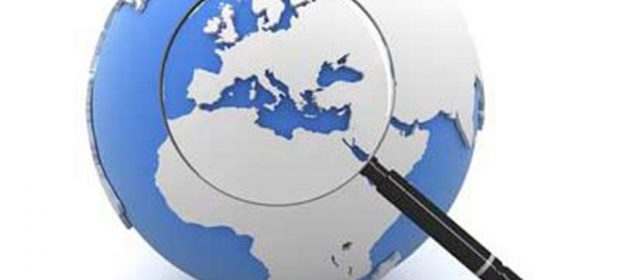
16.10.14
There has never been a better time to get low rate French mortgage for British buyers, with rates at their lowest for almost 60 years. With fixed rates as low as 2.50% and capped variable rates as low as 2.20% (over a duration of 10 years), it is now easier for investors to find properties in France.
Why get a French Mortgage ?
The additional competition between French banks to attract domestic borrowers has helped to push mortgage rates to record levels. Our English-speaking Spectrum Mortgage Advisers can arrange and advise on mortgages for property purchases in France.
For information on rates and types of mortgages and our great low rate French mortgage, visit our mortgage option page
For further information please call us at +33 (0)4 93 00 01 13 or email us at info@spectrum-mortgages.com
Posted by WebMaster in Get a Low rate French mortgage, Low rate French mortgage, mortgages in france




